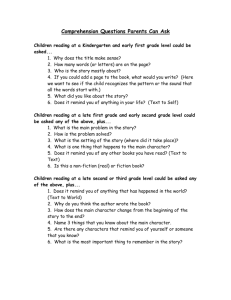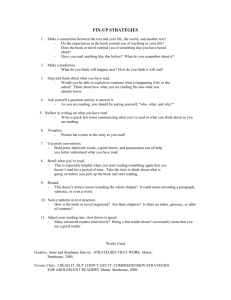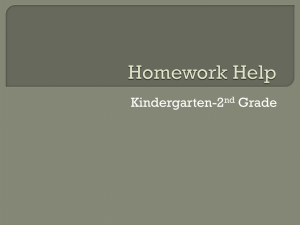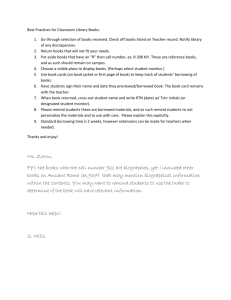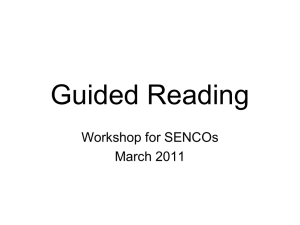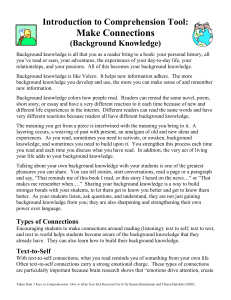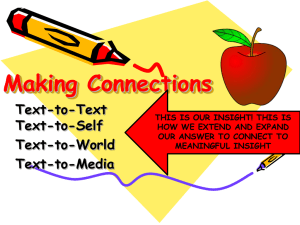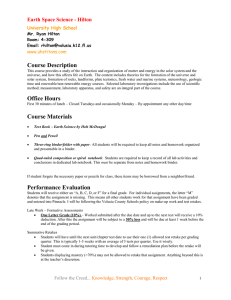How to Maintain Your Reader's Skill
advertisement
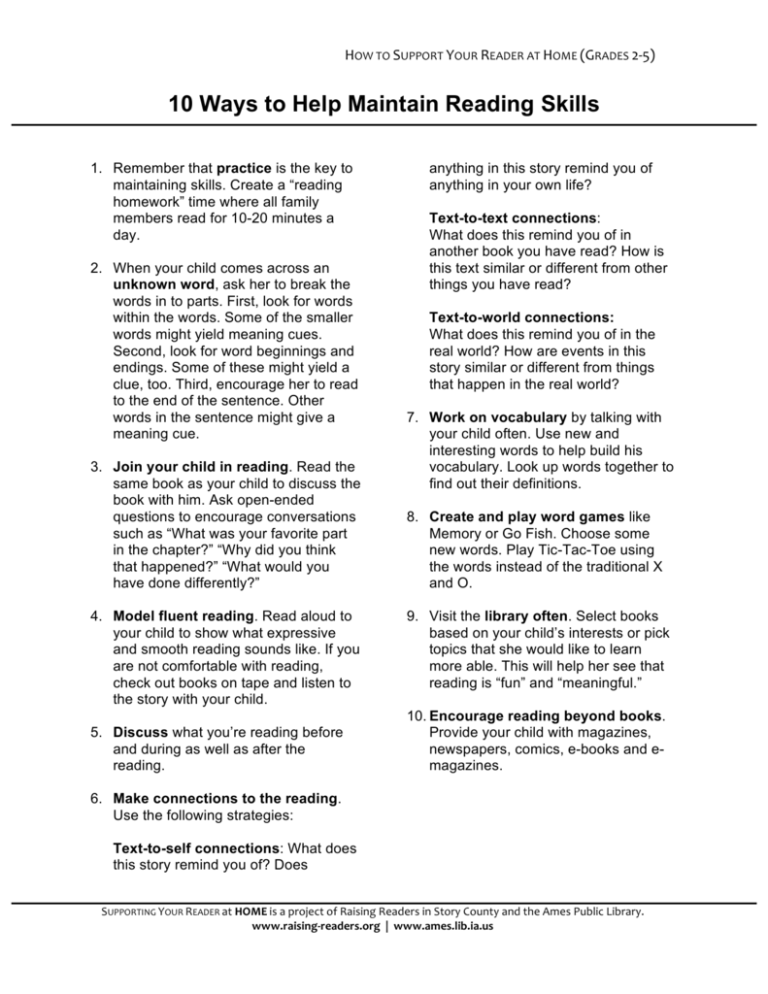
HOW TO SUPPORT YOUR READER AT HOME (GRADES 2-­‐5) 10 Ways to Help Maintain Reading Skills 1. Remember that practice is the key to maintaining skills. Create a “reading homework” time where all family members read for 10-20 minutes a day. 2. When your child comes across an unknown word, ask her to break the words in to parts. First, look for words within the words. Some of the smaller words might yield meaning cues. Second, look for word beginnings and endings. Some of these might yield a clue, too. Third, encourage her to read to the end of the sentence. Other words in the sentence might give a meaning cue. 3. Join your child in reading. Read the same book as your child to discuss the book with him. Ask open-ended questions to encourage conversations such as “What was your favorite part in the chapter?” “Why did you think that happened?” “What would you have done differently?” 4. Model fluent reading. Read aloud to your child to show what expressive and smooth reading sounds like. If you are not comfortable with reading, check out books on tape and listen to the story with your child. 5. Discuss what you’re reading before and during as well as after the reading. anything in this story remind you of anything in your own life? Text-to-text connections: What does this remind you of in another book you have read? How is this text similar or different from other things you have read? Text-to-world connections: What does this remind you of in the real world? How are events in this story similar or different from things that happen in the real world? 7. Work on vocabulary by talking with your child often. Use new and interesting words to help build his vocabulary. Look up words together to find out their definitions. 8. Create and play word games like Memory or Go Fish. Choose some new words. Play Tic-Tac-Toe using the words instead of the traditional X and O. 9. Visit the library often. Select books based on your child’s interests or pick topics that she would like to learn more able. This will help her see that reading is “fun” and “meaningful.” 10. Encourage reading beyond books. Provide your child with magazines, newspapers, comics, e-books and emagazines. 6. Make connections to the reading. Use the following strategies: Text-to-self connections: What does this story remind you of? Does SUPPORTING YOUR READER at HOME is a project of Raising Readers in Story County and the Ames Public Library. www.raising-­‐readers.org | www.ames.lib.ia.us

